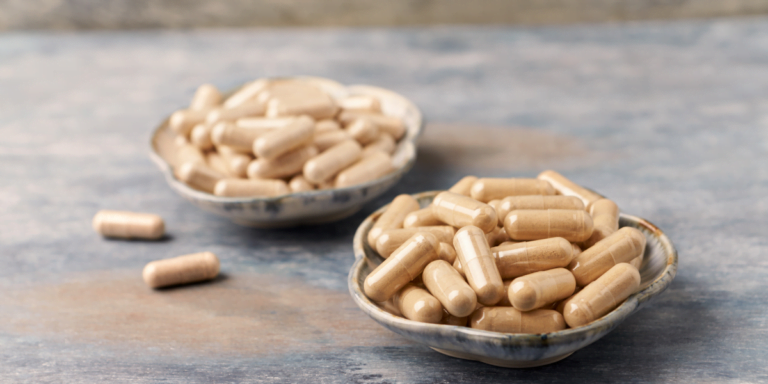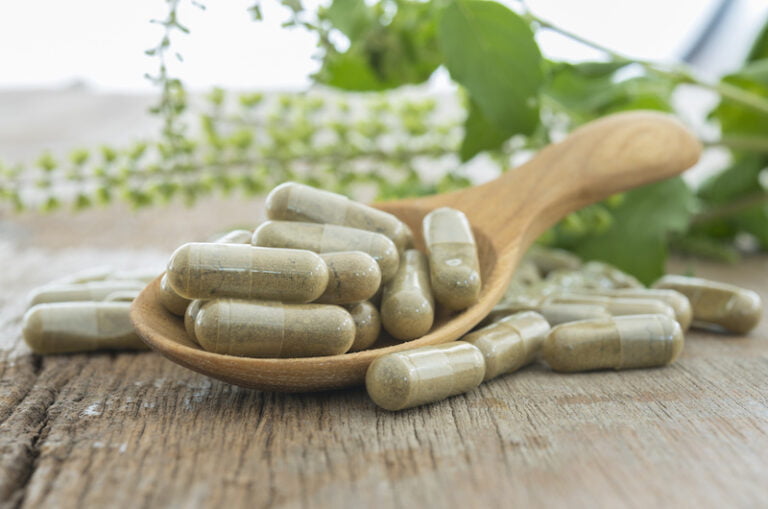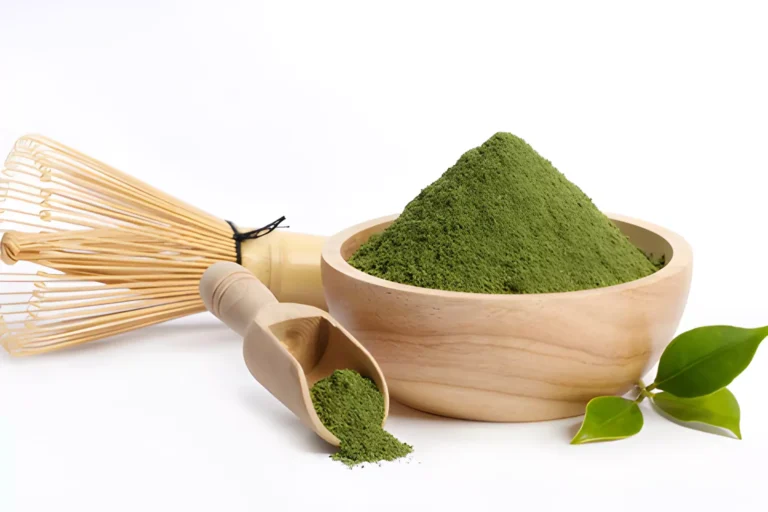Psyllium Husk Vs Flaxseed: Which is Better for Your Health?
If you are looking for a natural way to boost your fiber intake, you may have come across two popular options: psyllium husk and flaxseed. Both of these plant-based foods are rich in soluble and insoluble fiber, which can benefit your digestion, heart health, blood sugar levels, and more. But how do they compare, and which one is better for your health? In this article, we will explore the similarities and differences between psyllium husk and flaxseed, and help you decide which one to choose for your needs.
What is Psyllium Husk?
Psyllium husk is the outer layer of the seeds of the plantago ovata plant, also known as ispaghula. It is native to India and Pakistan, but it is cultivated worldwide. Psyllium husk is commonly used as a bulk-forming laxative, as it absorbs water and forms a gel-like substance in the gut. This helps soften the stool and stimulate bowel movements, easing constipation and other digestive issues. Psyllium husk is also a prebiotic, meaning it feeds the beneficial bacteria in your gut, which can improve your immune system and overall health.
What is Flaxseed?
Flaxseed is the seed of the flax plant, which belongs to the same family as sesame seeds. It is one of the oldest crops in the world, dating back to ancient times. Flaxseed can be eaten whole or ground into a powder, or pressed into an oil. Flaxseed has a nutty flavor and a crunchy texture, and it can be added to various dishes, such as smoothies, oatmeal, salads, baked goods, and more. Flaxseed is not only a source of fiber, but also of omega-3 fatty acids, lignans, protein, and other nutrients.
Similarities Between Psyllium Husk and Flaxseed
Both psyllium husk and flaxseed are excellent sources of dietary fiber, which is essential for your health. Fiber can help you feel full longer, prevent overeating, and maintain a healthy weight. Fiber can also lower your cholesterol levels, reduce your blood pressure, and lower your risk of heart disease and stroke. Fiber can also regulate your blood sugar levels, preventing spikes and crashes that can lead to diabetes or metabolic syndrome. Fiber can also support your digestive health by preventing constipation, diarrhea, irritable bowel syndrome (IBS), inflammatory bowel disease (IBD), diverticulitis, and colon cancer.
Both psyllium husk and flaxseed contain both soluble and insoluble fiber, but in different proportions. Soluble fiber dissolves in water and forms a gel-like substance that slows down digestion and absorption of nutrients. This can help lower cholesterol and blood sugar levels, as well as increase satiety. Insoluble fiber does not dissolve in water and adds bulk to the stool, which speeds up transit time and helps prevent constipation.
According to the USDA FoodData Central database, one tablespoon (7 grams) of psyllium husk contains 6 grams of total fiber, of which 4 grams are soluble and 2 grams are insoluble. One tablespoon (7 grams) of ground flaxseed contains 2 grams of total fiber, of which 1 gram is soluble and 1 gram is insoluble.
Here is the complete comparison of psyllium husk vs flax seed nutrition value:
| Nutrient | Psyllium Husk (1 tbsp, 7 g) | Flaxseed (1 tbsp, 7 g) |
|---|---|---|
| Calories | 20 kcal | 37 kcal |
| Total Fat | 0 g | 3 g |
| Saturated Fat | 0 g | 0.3 g |
| Trans Fat | 0 g | 0 g |
| Polyunsaturated Fat | 0 g | 2.1 g |
| Monounsaturated Fat | 0 g | 0.6 g |
| Cholesterol | 0 mg | 0 mg |
| Sodium | 4 mg | 2 mg |
| Total Carbohydrate | 5.9 g | 2.1 g |
| Dietary Fiber | 5.9 g | 1.9 g |
| Soluble Fiber | 4.2 g | 1.1 g |
| Insoluble Fiber | 1.7 g | 0.8 g |
| Total Sugars | 0 g | 0.1 g |
Comparision Between Psyllium Husk and Flaxseeds
While both psyllium husk and flaxseed are high in fiber, they have some notable differences in their nutritional profiles and health benefits.
One major difference is that flaxseed contains omega-3 fatty acids, while psyllium husk does not. Omega-3 fatty acids are essential fats that your body cannot make on its own. They have anti-inflammatory properties and can protect your heart health by lowering triglycerides (a type of fat in your blood), preventing blood clots, improving blood vessel function, and reducing inflammation. Omega-3 fatty acids may also benefit your brain health by improving mood, memory, cognition, and preventing depression and dementia.
Flaxseed is one of the richest plant sources of alpha-linolenic acid (ALA), a type of omega-3 fatty acid that can be converted into eicosapentaenoic acid (EPA) and docosahexaenoic acid (DHA), the two most active forms of omega-3s found in fish oil. However, this conversion process is inefficient in humans, so you may need to consume more ALA to get the same benefits as EPA and DHA.
One tablespoon (7 grams) of ground flaxseed contains 1.6 grams of ALA, which meets about 100% of the Adequate Intake (AI) for women and 64% for men3. Psyllium husk does not contain any ALA or other omega-3 fatty acids.
Another difference is that flaxseed contains lignans, while psyllium husk does not. Lignans are phytoestrogens, which are plant compounds that can mimic the effects of estrogen in your body. Lignans may have anti-cancer effects, especially for hormone-sensitive cancers, such as breast, prostate, and ovarian cancers. Lignans may also help balance your hormones, reduce menopausal symptoms, and protect your bone health.
Flaxseed is the richest source of lignans in the human diet, containing about 75 to 800 times more lignans than other plant foods. One tablespoon (7 grams) of ground flaxseed contains about 85 milligrams of lignans. Psyllium husk does not contain any lignans or other phytoestrogens.
A third difference is that flaxseed contains more protein, vitamins, and minerals than psyllium husk. Protein is an essential macronutrient that builds and repairs your muscles, organs, skin, hair, nails, and other tissues. Protein also helps regulate your hormones, enzymes, immune system, and metabolism. Protein can also help you feel full longer and preserve your muscle mass.
One tablespoon (7 grams) of ground flaxseed contains 1.3 grams of protein, while one tablespoon (7 grams) of psyllium husk contains only 0.2 grams of protein.
Flaxseed also provides more thiamine (vitamin B1), copper, manganese, magnesium, phosphorus, selenium, zinc, vitamin B6, iron, and folate than psyllium husk. These vitamins and minerals are involved in various functions in your body, such as energy production, nerve function, immune health, antioxidant defense, blood formation, and DNA synthesis.
One tablespoon (7 grams) of ground flaxseed provides 10% of the Daily Value (DV) for thiamine, 9% for copper, 8% for manganese, 7% for magnesium, 4% for phosphorus and selenium, 3% for zinc and vitamin B6, 2% for iron and folate. One tablespoon (7 grams) of psyllium husk provides only 1% of the DV for each of these nutrients.
Conclusion
Psyllium husk and flaxseed are both excellent sources of fiber that can benefit your health in many ways. However, they also have some differences that may make one more suitable for your needs than the other. Psyllium husk is mainly used as a bulk-forming laxative that can relieve constipation and other digestive issues. It is also a prebiotic that can support your gut health and immune system. Psyllium husk is mostly composed of fiber and has very little protein or other nutrients.
Flaxseed is not only a source of fiber but also of omega-3 fatty acids, lignans, protein, and other vitamins and minerals. Flaxseed can help lower your cholesterol and blood pressure levels, protect your heart health, reduce inflammation, balance your hormones, and prevent some types of cancer. Both psyllium husk and flaxseed can be easily added to your diet by mixing them with water or other liquids or sprinkling them on your food. You can also find them in capsules or tablets form if you prefer a more convenient way to consume them.
The best way to choose between psyllium husk and flaxseed is to consider your health goals and preferences. If you are looking for a simple and effective way to increase your fiber intake and improve your bowel movements, psyllium husk may be a good option for you. If you are looking for a more comprehensive way to boost your overall health and wellness with additional nutrients and benefits, flaxseed may be a better choice for you.




